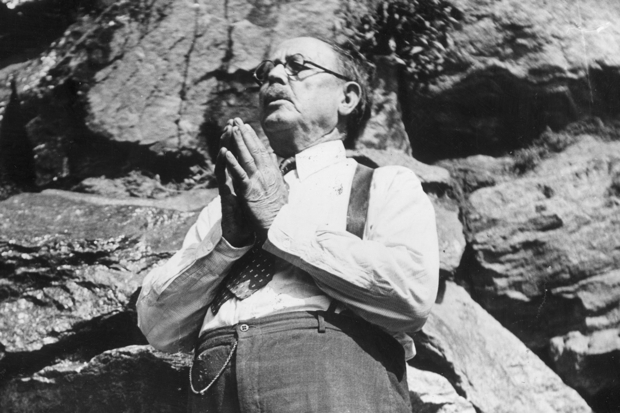No doubt you, too, have had the feeling, upon glancing at an article in a paper picked up in a train or café, that it might mean something to someone, but it means nothing to you. I read this sentence in the Times the other day: ‘Not everyone builds an M&A machine on the back of stuff people throw away, such as till receipts and paper cups.’ A machine? On the back of stuff? And what are M&As — like M&Ms?
But I persevered, and later in the piece a phrase appeared without which no indigestible article is complete: ‘Mr Roney’s due diligence on family firms is so painstaking that he typically waits for one of four issues: succession, financial crisis, health or divorce.’ Issues here means ‘problems’ and health means ‘sickness’. But what does due diligence mean?
Although the phrase has been found in print from as long ago as 1598, it was not until 2003 that it found its way into the Oxford English Dictionary. An early citation is from a poem little read for pleasure, though not bare of merit, The Day of Doom by Michael Wigglesworth, a New England Calvinist, a ‘morbid, humorless, selfish busybody’ in the eyes of a recent Yale professor, but in his day (the 1660s), a bestselling author. Some of this long poem is in the metre of the Psalm text set by Thomas Tallis which inspired Vaughan Williams, but a different metre takes over for the rhyming couplet: ‘Oh, wait upon him with due diligence,/ And trembling fear in every Ordinance.’
This is not at all the meaning recently re-imported from the US: ‘A comprehensive appraisal of a business undertaken by or on behalf of a prospective buyer, especially in order to establish the exact scope of current assets and liabilities.’ Such an appraisal seems only sensible, but the term is invested with almost a magical status, and used in extended senses. It can belong to the same utopian world as best practice; used minatorily, it is more like caveat emptor — if you don’t do your due diligence, you deserve to be stung. Here, diligence has come a long way from the Latin diligere, ‘to love, take delight in doing’.
Got something to add? Join the discussion and comment below.
Get 10 issues for just $10
Subscribe to The Spectator Australia today for the next 10 magazine issues, plus full online access, for just $10.
You might disagree with half of it, but you’ll enjoy reading all of it. Try your first month for free, then just $2 a week for the remainder of your first year.















Comments
Don't miss out
Join the conversation with other Spectator Australia readers. Subscribe to leave a comment.
SUBSCRIBEAlready a subscriber? Log in